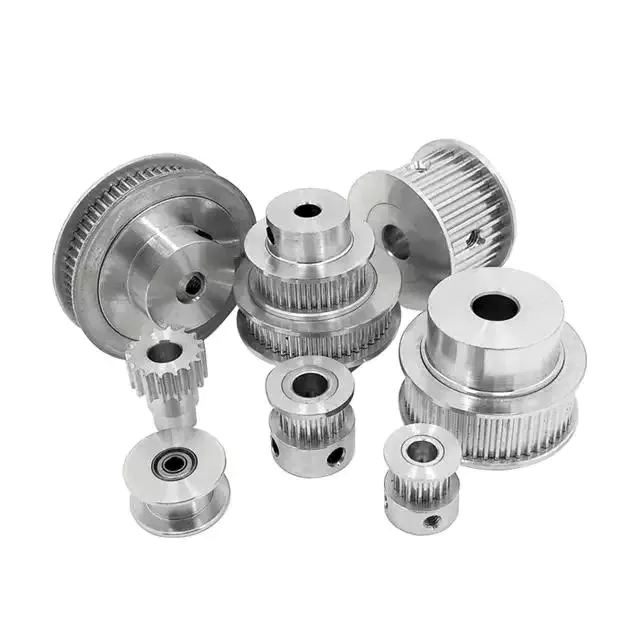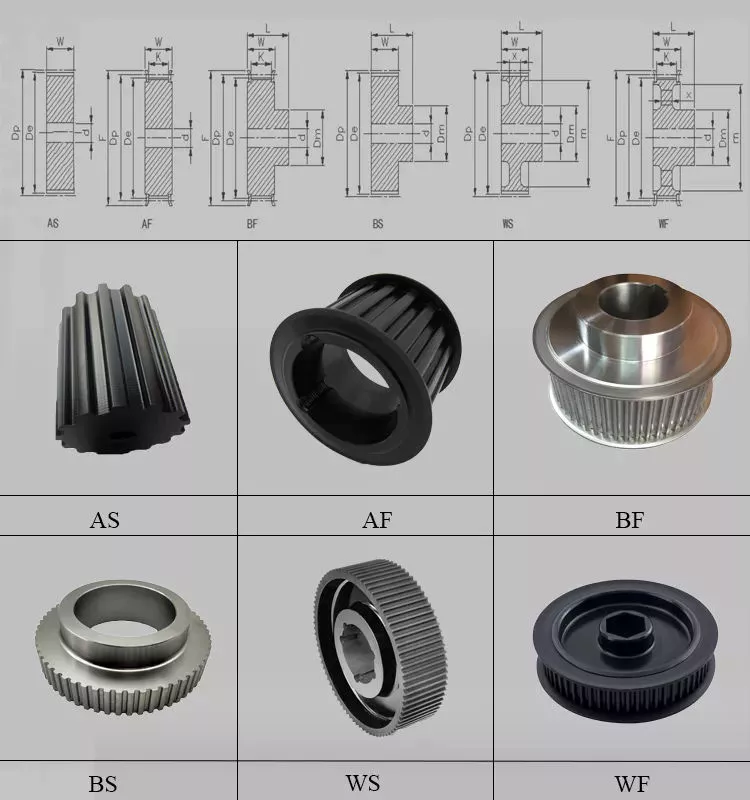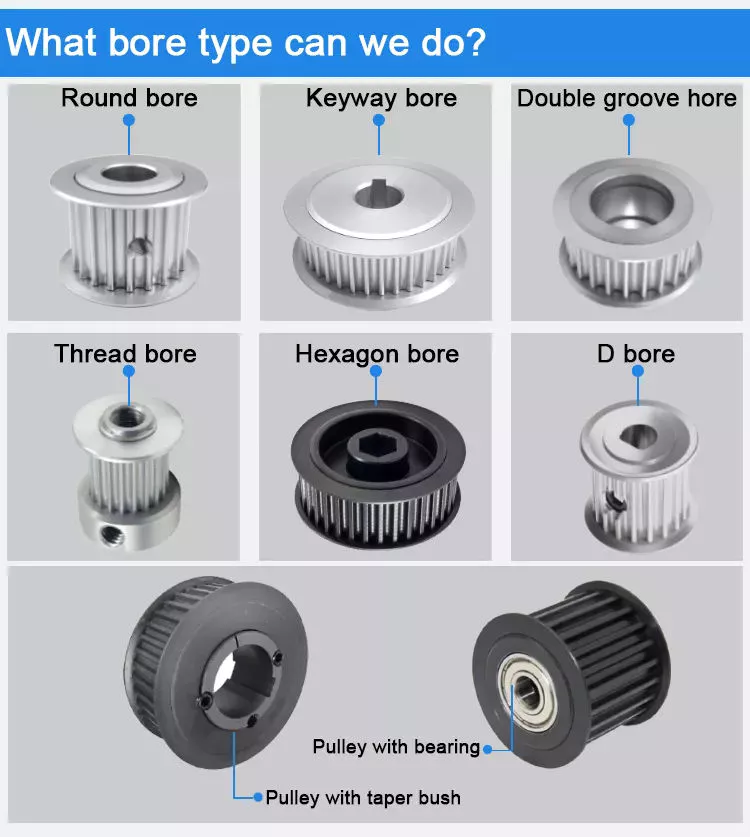Product Description
Product Description
VKM65089
Auto Engine Bearing Spare Parts Car V-ribbed Belt Tensioner Idler Pulley for TOYOTA CITROEN LEXUS PEUGEOT
Multi-V-idler bearing to perform a quality repair.
Belt Tensioner, belt tensioner pulley, timing belt tensioner, automatic belt tensioner, belt pulley, timing pulley, idler pulley, engine pulley, idler pulley assembly, tensioner & idler pulley, belt idler pulley, drive belt idler, pulley, tensioner, tensioner bearing, tensioner bearing replacement
Detailed Photos
Product Parameters
OE No.
| CITROEN : 165718780 CITROEN : 1611419580 CITROEN : 1611423580 |
LEXUS : 166571030 LOTUS : A132E6572S MITSUBISHI : 1341A051 |
PEUGEOT : 165718780 PEUGEOT : 1611419580 PEUGEOT : 1611423580 TOYOTA : 166571030 |
Reference No.
| A5716 TB2449 89032 SK009280 |
FI24490 PU1 0571 6RMXY VKM65089 |
PU1 0571 6RMXY1 RPK571390 56671 |
APPLICATION
| FIAT FULLBACK Pickup (502_, 503_) 2.4 D (KT0T) 2016- 4N15 2442 113 Pickup FIAT FULLBACK Pickup (502_, 503_) 2.4 D 4×4 (KT0T) 2016- 4N15 2442 133 Pickup FIAT FULLBACK Pickup (502_, 503_) 2.4 D 4×4 (KT0T) 2016- 4N15 2442 110 Pickup FIAT FULLBACK Pickup (502_, 503_) 2.4 D 4×4 (KT0T) 2016- 4N15 2442 113 Pickup |
| MITSUBISHI ASX (GA_W_) 1.8 2571- 4B10 1798 102 SUV MITSUBISHI ASX (GA_W_) 2.0 MIVEC 2571- 4B11,4J11 1998 110 SUV MITSUBISHI ASX (GA_W_) 2.0 MIVEC 4WD 2571- 4B11,4J11 1998 110 SUV MITSUBISHI L200 / TRITON (KJ_, KK_, KL_) 2.4 DI-D (KJ0T) 2015- 4N15 2442 113 Pickup MITSUBISHI L200 / TRITON (KJ_, KK_, KL_) 2.4 DI-D 4WD (KJ0T) 2015- 4N15 2442 113 Pickup MITSUBISHI L200 / TRITON (KJ_, KK_, KL_) 2.4 DI-D 4WD (KL1T) 2014- 4N15 2442 133 Pickup MITSUBISHI LANCER VIII (CY_A, CZ_A) 1.8 2008- 4B10 1798 105 Saloon MITSUBISHI LANCER VIII (CY_A, CZ_A) 1.8 2571- 4B10 1798 103 Saloon MITSUBISHI LANCER VIII (CY_A, CZ_A) 1.8 Bifuel 2571- 4B10 1798 105 Saloon MITSUBISHI LANCER VIII (CY_A, CZ_A) 1.8 Flexfuel 2009- 4B10 1798 103 Saloon MITSUBISHI LANCER VIII Sportback (CX_A) 1.8 Flex 2009- 4B10 1798 103 Hatchback MITSUBISHI LANCER VIII Sportback (CX_A) 1.8 MIVEC 2009- 4B10 1798 103 Hatchback MITSUBISHI OUTLANDER III (GG_W, GF_W, ZJ, ZL, ZK) 2.0 (GF7W) 2012- 4J11 1998 110 SUV MITSUBISHI OUTLANDER III (GG_W, GF_W, ZJ, ZL, ZK) 2.0 4WD (GF7W) 2012- 4J11 1998 110 SUV MITSUBISHI OUTLANDER III (GG_W, GF_W, ZJ, ZL, ZK) 2.0 Hybrid 4WD (GG2W) 2012-4 B11,S61,Y61 1998 89 SUV MITSUBISHI PAJERO SPORT III (KS_) 2.4 DI-D 4×4 (KS1W) 2015-4N15 2442 133 Closed Off-Road Vehicl |
MORE MODELS FOR REFERENCE
(click to learn more)
| S KF No. | OE No. | Reference No. | |
| VKM21223 | 06D109244C 06D109244D 06D109244E |
ADBP-006 2388-EOS 35717 T42148 |
PB-3105 PT52112 VKM21223 GE357.39 |
| VKM35330 | 55562864 1340269 |
157 0571 0381617 CR4385 TOA4385 |
APV2848 APV3042 34472 T39164 |
| VKM11050 | 054109479 | 641081 S076 53157120 531571 |
53157100 53157120 53157130 531571200 |
| VKM61071 | 88440-0K380 88440-0K381 88440-25070 |
03.82009 14.13075 GTA5202 |
RKT3725 RKT3725 |
| VKM61043 | 16630-21571 | TYBP-055 APV2773 0187-NHW20 |
531086110 GA369.10 |
| VKM18100 | 11311272424 11311468743 11311711154 1711153 |
CR1684 V55000 ATB2270 543095E |
RKT1571 TD24100 Y3571 KCG124 |
| VKM24212 | 1038384 978M6M250AA F8CZ6M250AA |
651778 11289 U773 532015110 |
532015100 532015120 532015130 5320151100 |
| VKM11200 | 078109243A 078109243C |
51220002 641114 5710 S109 |
531008420 5310084 531008400 531008420 |
| VKM34219 | 1761931 CM5Q19A216AB |
25857122 APV3174 T36493 |
57122 951820 |
| VKM36242 | 6G9N 7739 AD 6G9N 7739 AE 3 0571 695 31401286 |
655070 36523 T38495 534032410 |
534032420 534032430 5340324100 56549 |
| VKM38337 | 11287799851 7799851 |
253 0571 3.1 YP313923.1 APV3032 36488 |
T39203
0-N2082 |
| VKM35571 | 97184930 98012238 38940PLZD00 8971849301 |
1570305 038 0571 CR3601 APV2204 |
26937 T36182 U1571 T571 |
| VKM34115 | 1685618 180 0571 BM5Q-6A228-AA DS7G 6A228 AA |
E2G0036BTA 39930 T39266 |
57108 950041 |
| VKM84001 | KL01-12-730 KL01-12-730A |
RKT1518 RKT1765 RPK009619 RPK557862 |
57008 RT57008 SK008509 SK556752 |
| VKM11269 | 03L109243B 03L109243C 03L109243D 03L109243F 03L109243N |
32486VV TP0160 654760 1987947477 |
HTG414 F56084403 F577090 153755 |
| VKM38516 | 2742571019 2742571119 A2742571019 A2742571119 |
YP756618 1570638 210152110 A5716 |
E2M0056BTA 505717 503830 APV3216 |
| VKM64019 | 252862B040 252862B000 252862B571 |
157571 0381281 CR5459 APV2666 |
T36419 532064410 58437 GA38408 |
| VKM64018 | 25287-2A000 25287-2A100 |
ADG096516 APV3209 T36473 J114571 |
DIP-3017 GA384.15 |
| VKM61071 | 88440-0K380 88440-0K381 88440-25070 |
03.82009 14.13075 |
GTA5202 RKT3725 |
| VKM31571 | 03G 903 315 03G 903 315A |
13746 54766 654084 RT1890 |
E2W0026BTA 65594030 WG1253308 WG1428675 |
| VKM65101 | MD327653 | 0488-KG4W T36778 J1145077 FI27370 |
YM325101 AA1237 ADC496508 89608 |
Packaging & Shipping
Company Profile
ZheJiang Mighty Machinery Co. Ltd is a professional manufacturer of auto bearings for more than 20 years. We provide a one-stop service for our customers. Our main products include wheel bearings & hub assembly, belt tensioners, clutch release bearings, and other parts.
Relying on the professional and rich manufacturing experience and many substantial factories which stable cooperated for many years, Mighty suppliers customers high-quality products at very competitive prices.
Customer’s satisfaction is our First Priority, We adhere to the concept of ” Quality First, Customer First”. We will continue to provide high-quality products and the best services to our customers and build up CZPT long-time friendship partners.
Exhibition
Our Advantages
More than 20 years of manufacturing and exporting experience
OEM manufacturing available
Full range, large stock
Quickly feedback
One year warranty
One-stop service
On-time delivery
FAQ
1. What’s the minimum order quantity?
We don’t have the minimum order quantity. We can also provide free samples, but you need to pay the freight.
2. Do you provide ODM&OEM order service?
Yes, we provide ODM&OEM services to customers around the world, and we can customize different brands and different sizes of packaging boxes according to customers’ requirements.
3. After-sales service and warranty time
We guarantee that our products will be free from defects in materials and workmanship within 12 months from the date of delivery. The warranty is void due to improper use, incorrect installation, and physical damage.
4. How to place an order?
Send us an email of the models, brand, quantity, consignee information, model of transportation, and payment
Confirm payment and arrange the production.
5. What are your packing conditions?
We use standardized export packaging and environmental protection packaging materials. If you have a legally registered patent, we will package the goods in your brand box after receiving your authorization
6. What are your payment terms?
T/T is 30% of the payment in advance and 70% balance before delivery. Before you pay the balance, we will show you photos or videos of the products and packaging.
7. How long is your delivery time?
The delivery time of sample order is 3-5 days, and that of a batch order is 5-45 days. The exact delivery time depends on the item and the quantity you ordered.
8. Do you test all products before delivery?
Yes, according to ISO standards, we have professional Q/C personnel, precision testing instruments, and an internal inspection system. We control the quality of every process from material receiving to packaging to ensure that you receive high-quality products
9. How do you make our business long-term and good relationship?
A:1. We keep good quality and competitive price to ensure our customers benefit ;
2. We respect every customer as our friend and we sincerely do business and make friends with them,
no matter where they come from.
| After-sales Service: | One Year |
|---|---|
| Warranty: | One Year |
| Type: | Tensioner Bearing |
| Material: | Chrome Steel |
| Tolerance: | P0 |
| Certification: | ISO9001, TS16949 |
| Samples: |
US$ 30/Piece
1 Piece(Min.Order) | |
|---|
| Customization: |
Available
| Customized Request |
|---|

Three basic types of pulleys, their applications and ideal mechanical advantages
There are three basic types of pulleys: movable, fixed and compound. Each has its advantages and disadvantages, and you should be able to judge which type is best for your needs by looking at the table below. Once you have mastered the different types of pulleys, you can choose the right pulley for your next project. Now that you have mastered the three basic types, it is time to understand their applications and ideal mechanical advantages.
describe
The stress characteristics of a pulley depend on its size and construction. These stresses are derived by comparing the stress characteristics of different pulley designs. Stress criteria include static and fatigue strength analyses and specify maximum stress ranges. Stresses are calculated in a 3D stress field, including radial, tangential and axial stresses. The stress characteristics of pulleys are critical to the design and manufacture of industrial machines.
The principal stresses on the pulley shell are distributed in the tangential and hoop directions, close to the centerline of the pulley. If the pulley has a wide face, the axial stress occurring near the shell/disk junction can be large. The stress distribution was determined using British Standard BS5400 Part 10: Stresses at the shell and end disc connections for infinite fatigue life.
Another type of composite is a pulley with a belt section. Such structures are well known in the art. The corresponding help chapters for these elements contain detailed descriptions of the internal structure of these components. Chamfers between pulleys can also be defined using multiple tapers, with a smaller taper extending from midpoint 44 to large diameter 42. Additionally, the pulley can have multiple taper angles, and as the pulley moves away, the taper angle is from the center.
type
A pulley system uses a rope to move the object and one side of the rope to lift the load. The load is attached to one end of the pulley, while the other end can move freely in space. The force applied to the free end of the rope pulls the load up or down. Because of this, the mechanical advantage of the movable pulley is two to one. The greater the force applied to the free end of the rope, the greater the amount of movement achieved.
There are three common types of pulleys. The cast-iron variety has a rim at the front and a hub at the back. The arms of the pulley can be straight or curved. When the arms contract and yield instead of breaking, they are in tension. The top of the pulley centers the belt in motion and is available in widths ranging from 9mm to 300mm.
The rope, hub and axle are mounted on the pulley. They are common and versatile mechanical devices that make it easier to move or lift objects. Some pulleys change the direction of the force. Others change the magnitude. All types of pulleys can be used for a variety of different applications. Here are some examples. If you’re not sure which type to choose, you can find more resources online.
application
The applications for pulleys are almost limitless. This simple machine turns complex tasks into simple ones. They consist of a rope or chain wrapped around a wheel or axle. Using ropes, one can lift heavy objects without the enormous physical exertion of traditional lifting equipment. Some pulleys are equipped with rollers, which greatly magnifies the lifting force.
When used properly, the pulley system can change the direction of the applied force. It provides a mechanical advantage and allows the operator to remain separate from heavy objects. They are also inexpensive, easy to assemble, and require little lubrication after installation. Also, once installed, the pulley system requires little maintenance. They can even be used effortlessly. Despite having many moving parts, pulley systems do not require lubrication, making them a cost-effective alternative to mechanical lifts.
Pulleys are used in many applications including adjustable clotheslines in different machines, kitchen drawers and motor pulleys. Commercial users of pulley systems include cranes. These machines use a pulley system to lift and place heavy objects. They are also used by high-rise building washing companies. They can easily move a building without compromising its structural integrity. As a result, many industries rely on technology to make elevators easier.
Ideal mechanical advantage
The ideal mechanical advantage of a pulley system is the result of rope tension. The load is pulled to the center of the pulley, but the force is evenly distributed over the cable. Two pulleys will provide the mechanical advantage of two pulleys. The total energy used will remain the same. If multiple pulleys are used, friction between pulleys and pulleys reduces the return of energy.
Lever-based machines are simple devices that can work. These include levers, wheels and axles, screws, wedges and ramps. Their ability to work depends on their efficiency and mechanical superiority. The ideal mechanical advantage assumes perfect efficiency, while the actual mechanical advantage takes friction into account. The distance traveled by the load and the force applied are also factors in determining the ideal mechanical advantage of the pulley.
A simple pulley system has an MA of two. The weight attached to one end of the rope is called FA. Force FE and load FL are connected to the other end of the rope. The distance that the lifter pulls the rope must be twice or half the force required to lift the weight. The same goes for side-by-side pulley systems.
Materials used in manufacturing
While aluminum and plastic are the most common materials for making pulleys, there are other materials to choose from for your timing pulleys. Despite their different physical properties, they all offer similar benefits. Aluminum is dense and corrosion-resistant, and plastic is lightweight and durable. Stainless steel is resistant to stains and rust, but is expensive to maintain. For this reason, aluminum is a popular choice for heavy duty pulleys.
Metal can also be used to make pulleys. Aluminum pulleys are lightweight and strong, while other materials are not as durable. CZPT produces aluminium pulleys, but can also produce other materials or special finishes. The list below is just representative of some common materials and finishes. Many different materials are used, so you should discuss the best options for your application with your engineer.
Metals such as steel and aluminum are commonly used to make pulleys. These materials are relatively light and have a low coefficient of friction. Steel pulleys are also more durable than aluminum pulleys. For heavier applications, steel and aluminum are preferred, but consider weight limitations when selecting materials. For example, metal pulleys can be used in electric motors to transmit belt motion.
cost
Replacing a tensioner in a car’s engine can cost anywhere from $90 to $300, depending on the make and model of the car. Cost can also be affected by the complexity of the pulley system and how many pulleys are required. Replacement costs may also increase depending on the severity of the damage. The cost of replacing pulleys also varies from car to car, as different manufacturers use different engines and drivetrains.
Induction motors have been an industrial workhorse for 130 years, but their cost is growing. As energy costs rise and the cost of ownership increases, these motors will only get more expensive. New technologies are now available to increase efficiency, reduce costs and improve safety standards.
The average job cost to replace an idler varies from $125 to $321, including labor. Parts and labor to replace a car pulley can range from $30 to $178. Labor and parts can cost an additional $10 to $40, depending on the make and model of the car. But the labor is worth the money because these pulleys are a critical part of a car’s engine.


editor by CX
2023-04-24